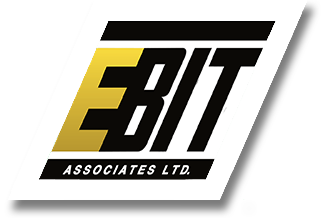Corporate Social Responsibility: Why It Matters More Than Ever in Business Sales and Corporate Social Responsibility
If you are not entirely familiar with the concept of Corporate Social Responsibility (CSR), you are not alone. While the term has gained traction over the past decade, many people still struggle to fully grasp what it means or why it has become such a priority. Yet in today’s marketplace, CSR is no longer optional. It has evolved into a central expectation from consumers, investors, employees, and even regulators. For businesses of all sizes, understanding CSR and putting its principles into practice has become a competitive advantage—and in some cases, a determining factor in long-term survival.
Understanding corporate social responsibility is key to navigating modern business landscapes and achieving success.
What makes CSR even more significant is its growing role in mergers and acquisitions. Buyers today are not simply looking at financials; they are also assessing a company’s reputation, ethical standing, and commitment to responsible practices. For sellers, this means that CSR initiatives can directly impact valuation and appeal to potential buyers. For buyers, strong CSR reduces risk and signals future growth potential. Before diving into its role in business transactions, however, it is important to understand the foundations of CSR.
Investors are increasingly scrutinizing corporate social responsibility initiatives when assessing potential acquisitions.
The Evolution of Corporate Social Responsibility
Understanding Corporate Social Responsibility in Business
Implementing corporate social responsibility effectively can enhance a company’s brand image significantly.
CSR is not a new idea, but its definition has expanded dramatically over time. In the early 20th century, many companies equated social responsibility with philanthropy. Business leaders would make charitable donations or fund community projects, often as a way to give back after accumulating wealth. While these efforts were valuable, they were often disconnected from the company’s core operations.
By the late 20th century, the rise of globalization, environmental awareness, and shifting labor expectations began to change the picture. Scandals related to sweatshops, environmental disasters, and deceptive marketing showed that businesses could no longer separate profits from their social impact. Corporate responsibility had to be more than occasional donations—it had to be embedded into daily operations.
Integrating corporate social responsibility into core operations is essential for sustainable growth.
Today, CSR has evolved into a strategic framework. It overlaps with Environmental, Social, and Governance (ESG) reporting, sustainability initiatives, and ethical business practices. Governments, investors, and consumers now hold businesses accountable in ways they never did before. CSR is no longer just a “nice to have”; it is a vital component of long-term business strategy.
Companies that prioritize corporate social responsibility often outperform their competitors.
The Four Pillars of Corporate Social Responsibility
CSR is commonly described as having four core pillars: community, environment, marketplace, and workplace. Each represents a distinct area where businesses have both influence and responsibility.
Community Engagement
Effective corporate social responsibility initiatives can lead to stronger community ties and brand loyalty.
The first pillar focuses on how a business engages with its community. This goes beyond writing a check to a local nonprofit. Community engagement includes volunteer programs, partnerships with local schools, and initiatives that support economic development in the areas where a business operates. For example, Salesforce’s 1-1-1 philanthropic model—donating 1% of equity, 1% of product, and 1% of employee time—has become a widely recognized standard of meaningful engagement.
When companies invest in their communities, they create goodwill that extends beyond immediate business benefits. Customers are more likely to support companies that they believe are contributing positively to society. Likewise, employees often feel greater pride working for a company that is visibly committed to its community. These outcomes can strengthen brand loyalty, improve retention, and build long-term reputational value.
Environmental Responsibility
The second pillar of CSR focuses on sustainability and the environment. In an era of rising climate concerns, environmental responsibility has become one of the most visible aspects of CSR. Consumers increasingly expect businesses to reduce waste, minimize carbon emissions, and embrace eco-friendly practices.
Market leaders recognize that corporate social responsibility greatly influences consumer choices.
Some companies have made this a central part of their identity. Patagonia, for instance, has built its brand around sustainability, from using recycled materials to encouraging customers to repair rather than replace products. Similarly, Unilever has integrated sustainability goals into nearly every aspect of its supply chain. While smaller businesses may not have the resources of global corporations, even modest steps—such as reducing packaging waste, switching to renewable energy, or sourcing from local suppliers—can make a meaningful impact.
Environmental responsibility is not only about public image. Governments are tightening regulations around emissions and waste, and companies that fail to adapt may face significant fines, lawsuits, or reputational damage. On the other hand, those that get ahead of the curve often find cost savings in efficiency improvements and new opportunities in green markets.
Investing in corporate social responsibility can mitigate risks and enhance corporate reputation.
Marketplace Integrity
The third pillar of CSR involves how a company conducts itself in the marketplace. This includes the fair treatment of customers, ethical relationships with suppliers, and honesty in marketing and advertising. With the rise of conscious consumerism, today’s buyers are more skeptical and informed. They expect transparency, and they can quickly call out businesses that mislead or exploit.
Transparency in corporate social responsibility practices fosters trust among consumers.
Greenwashing—when a company falsely promotes itself as environmentally friendly—offers a cautionary example. Businesses caught exaggerating their sustainability practices often face harsh backlash, damaging both their brand and their bottom line. Conversely, companies that embrace transparency, even when acknowledging challenges, often gain credibility and trust. Marketplace integrity also means maintaining strong relationships with suppliers, ensuring that partners are treated fairly, and avoiding exploitative practices in pursuit of profit.
Workplace Commitment
The final pillar of CSR addresses the workplace itself. A socially responsible company prioritizes fair treatment of employees, supports diversity and inclusion, and creates a safe and supportive environment. In today’s labor market, employees—especially younger generations—are looking for more than a paycheck. They want to work for organizations whose values align with their own.
Consider Costco, which has long been praised for providing fair wages and benefits compared to competitors in the retail industry. Or Microsoft, which has made significant efforts in accessibility and inclusivity. These initiatives not only improve employee morale but also reduce turnover, attract top talent, and foster innovation. Workplace commitment is not just about compliance with labor standards—it is about building a culture where people feel valued and respected.
Employees are more engaged when they work for companies committed to corporate social responsibility.
Why CSR Matters in Buying and Selling Businesses
Understanding the four pillars is important, but their true power becomes clear when we look at how CSR impacts mergers and acquisitions.
For Sellers
For business owners preparing to sell, CSR can directly influence valuation. A company with strong CSR practices is more attractive to buyers because it demonstrates stability, ethical integrity, and reduced long-term risk. Buyers know that businesses with positive community relationships, environmentally sustainable practices, ethical operations, and strong workplace cultures are less likely to face reputational damage or regulatory issues in the future.
Buyers are increasingly seeking companies that excel in corporate social responsibility practices.
In addition, CSR can help differentiate a company in a crowded market. Many buyers are seeking acquisitions that align with future trends and consumer expectations. A seller who can demonstrate measurable CSR initiatives will likely command greater interest and potentially a higher purchase price.
For Buyers
For buyers, corporate social responsibility can signal a company’s long-term viability and success.
From the buyer’s perspective, CSR offers assurance. Acquiring a company that has embraced CSR reduces reputational risk and signals long-term growth potential. Buyers are increasingly required to report on ESG factors themselves, so acquiring a socially responsible company can help meet those obligations.
On the flip side, ignoring CSR during due diligence can lead to costly mistakes. There have been high-profile acquisitions where hidden labor abuses, environmental violations, or ethical scandals were uncovered only after the deal closed—resulting in lawsuits, boycotts, and significant financial losses. By evaluating CSR upfront, buyers protect themselves and ensure alignment with their own values and obligations.
Buyers who prioritize corporate social responsibility often find more ethical and sustainable options.
CSR and Valuation: What Buyers Really Look At
When CSR comes into play during acquisitions, certain areas stand out. Buyers often review ESG reports, sustainability metrics, employee turnover rates, customer loyalty, and workplace satisfaction surveys. They assess supply chain ethics and look for compliance with labor and environmental regulations. These factors provide insight into both risks and opportunities that go beyond the balance sheet.
Corporate social responsibility metrics are becoming pivotal in assessing company value during acquisitions.
Global CSR Standards and Regulations
CSR expectations vary by region, but the trend is global. In Europe, regulations such as the Corporate Sustainability Reporting Directive (CSRD) require detailed disclosures on environmental and social impact. In the U.S., while regulations are less uniform, investors and consumers are applying pressure for greater transparency. In Asia, certain governments are also introducing stricter sustainability standards. For companies engaged in cross-border deals, understanding and aligning with international CSR standards is increasingly essential.
Adaptation to global corporate social responsibility standards is critical for international business operations.
The Financial Case for CSR
While some still see CSR as an expense, the evidence increasingly shows it is a driver of profitability. Companies that prioritize sustainability often uncover cost savings through energy efficiency and waste reduction. Ethical practices build customer loyalty, while inclusive workplaces reduce turnover costs. Furthermore, CSR often opens doors to new markets and contracts where buyers or clients demand evidence of responsible practices.
Companies leveraging corporate social responsibility often attract more customers and investment opportunities.
The Risks of Ignoring CSR
The risks of neglecting CSR are significant. Companies that fail to address environmental impact may face fines or lawsuits. Those that ignore workplace equity may struggle with labor shortages or employee strikes. Even small ethical missteps can spiral into public relations crises in today’s social media-driven world. In the context of buying and selling businesses, these risks translate directly into reduced valuations or failed deals.
Neglecting corporate social responsibility can lead to dire consequences for business sustainability.
Future Trends in CSR
Looking ahead, CSR is set to become even more important. Investors are increasingly prioritizing ESG factors in their decisions. Gen Z, now entering the workforce and consumer base in force, is particularly vocal about supporting businesses that align with their values. Technological advances such as blockchain are making supply chains more transparent, meaning companies will face greater scrutiny than ever before. Climate commitments, net-zero goals, and new reporting requirements will only increase pressure on businesses to take CSR seriously.
Future generations will likely demand corporate social responsibility from all businesses.
Practical Steps for Businesses to Strengthen CSR Before a Sale
For business owners considering a sale, strengthening CSR should be part of the preparation. This may include conducting a CSR audit, publishing a sustainability report, and enhancing employee engagement programs. It could also involve ensuring supply chain transparency, adopting eco-friendly practices, and building stronger community partnerships. Even small improvements can make a business more attractive to buyers and signal long-term value.
Enhancing corporate social responsibility will be a crucial step for businesses aiming for successful transitions.
Conclusion
Corporate Social Responsibility has moved from the sidelines to the center of business strategy, integrating corporate social responsibility into every facet of operations.
For sellers, CSR can be a differentiator that enhances valuation and buyer appeal. For buyers, CSR provides assurance that an acquisition is not just financially sound but also aligned with long-term trends and obligations.
Ultimately, corporate social responsibility is not just about doing the right thing—it is about building resilience, protecting reputation, and securing future growth through corporate social responsibility practices.


